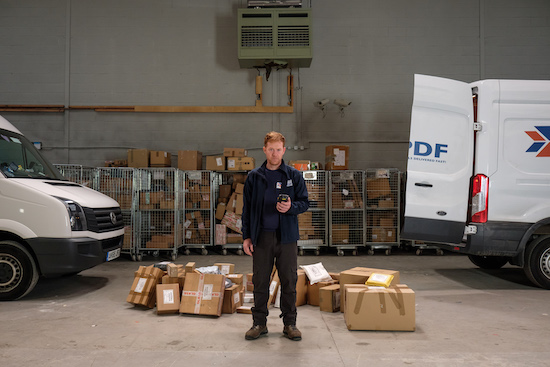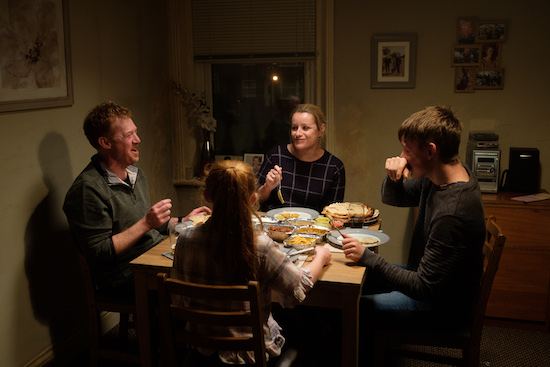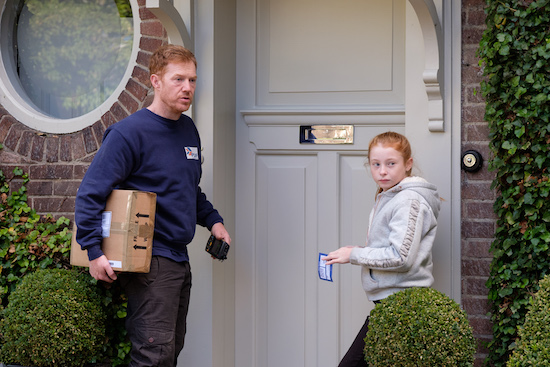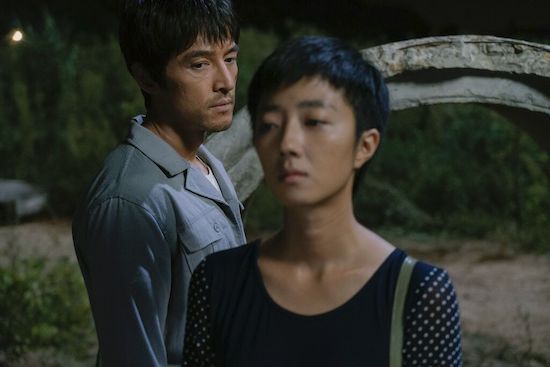Film: Take This Gig and …

Courtesy of Zeitgeist Films in Association with Kino Lorber
Ken Loach, Britain’s filmmaker laureate of socially conscious movies, often depicting working-class families, has created an emotionally wrenching, beautifully realized drama with Sorry We Missed You. What better times than this trying era for Loach, whose clear-eyed focus on the underclasses has driven his work since 1967’s Poor Cow.
He takes on the exploitation and false promises of the gig economy in his latest film, which opens with Ricky (Kris Hitchen), an unemployed father of two from Newcastle, interviewing for a van driver position with a company that’s an unholy cross between Amazon and Uber. As a franchisee he’ll receive no wages, no contract, and no regular hours. “Like everything around here, it’s your choice,” says Ricky’s future boss, Maloney (Ross Brewster), regarding the decision to buy a van or rent one from the company. Ricky opts to own, even though he and his wife Abbie (Debbie Honeywood) are already in debt. There’s the dangling carrot of major money to be made, but we can already see that the couple are on a hellishly slippery slope, and not just because this is a Ken Loach movie.

For her part, good-natured Abbie works tirelessly as a home health aide, visiting clients who need to be fed, cleaned and otherwise taken care of. Though the work can be frustrating, grueling and downright disgusting, Loach is careful to show the individual personalities of those Abbie cares for, several of whom are embarrassed and dismayed by their plights, while almost all appreciate her efforts. Similarly, Ricky has a few pleasant interactions with recipients of his deliveries, though others prove difficult and uncooperative, especially frustrating when his every working minute is being clocked.
Ricky’s workplace garage is horribly stressful, with unreasonable delivery quotas to be filled, no time for bathroom breaks (drivers carry empty water bottles) and a hard-as-nails boss who is unremittingly caustic, often pitting drivers against each other in the struggle for a more lucrative route. Any show of slowness or weakness is cause for harsh ridicule.

Meanwhile, the couple are raising two children, the mature and reasonable tween Liza and slightly older Seb. With both his parents working longer hours and too exhausted to really be present when they are home, Seb soon begins staying out late and getting into trouble, making infuriating, typically teen-rebellious decisions that threaten to topple an already fragile family dynamic.
Ricky and Abbie have an affectionate relationship, but mounting job pressures cause them to snap at each other, mainly about handling Seb. “I never thought it would be this difficult,” says Ricky at one point, doubtless echoing millions of others in similarly difficult economic situations.
Though there are warm moments when the family comes together, tensions continue to escalate until stakes are so high that we can barely breathe, hoping that somehow they can through this soul-destroying time.
Sorry We Missed You is both sweet and devastating, the work of a filmmaker who knows exactly how to tell his story for maximum impact.

Also opening this week is Diao Yinan’s The Wild Goose Lake, a darkly languid, noir-ish film that packs an unexpected punch. Shot in and around the city of Wuhan (before it was virus-besieged, lending the film an unintended air of melancholy), The Wild Good Lake is a stylish gangster tale that is familiar, yet wholly novel.
Part of an underworld of gangs and motorbike thieves, Zhou Zenong (a charismatically brooding Hu Ge) is on the lam after accidentally killing a cop. Attempting to elude the gangsters and police that are chasing him while trying to reconnect with his estranged wife, Zhou meets a coolly enigmatic young woman (Gwei Lun-mei) who has her own reasons for helping him.
The maze-like, rain-slicked streets and neighborhoods of the city are the backdrop for the manhunt, which is punctuated by tense encounters and wittily baroque violence. By the end of this twisty tale, the characters have somehow gotten under our skin; Diao’s film is surprisingly resonant.
Sorry We Missed You and The Wild Goose Lake open at the Film Forum on March 4 and March 6, respectively.
—Marina Zogbi

